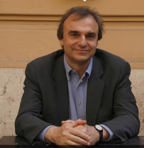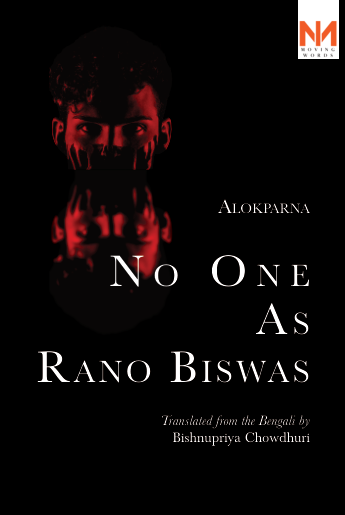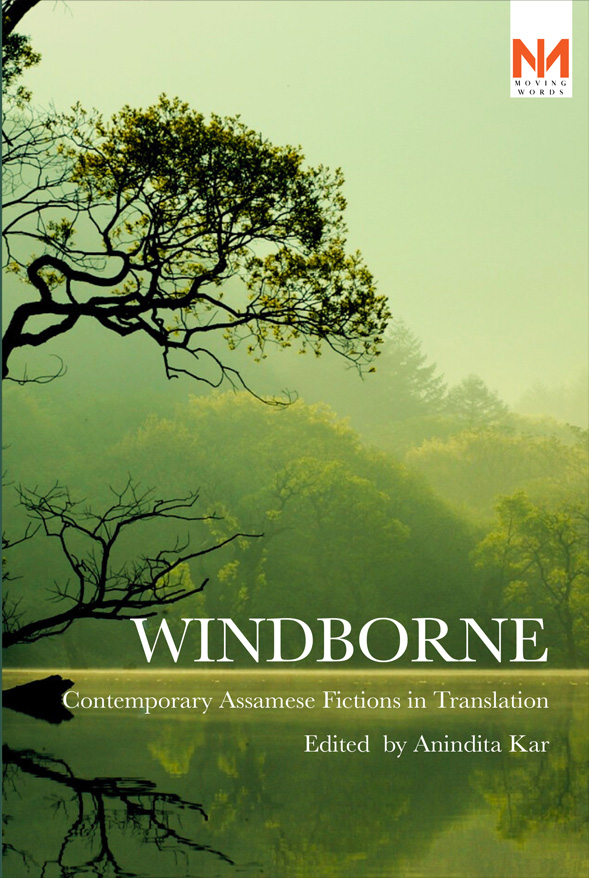
After leaving academia in early 1980, he devoted himself to writing and filmmaking. He produced several experimental documentaries, including Visioni di casa che crollano (Crumbling Houses), a critical meditation on the decay of deserted houses in the plains area of the River Po. The prize-winning volume of short stories Narratori delle pianure (1985; English translation by Robert Lumley, Voices from the Plains 1991) marked the beginning of Celati’s experimentation with new methods of minimalist narration which he also continued with Quattro novelle sulle apparenze (1987), translated into English by Stuart Hood as Appearances in 1991. Oscillating between fiction and documentary, his extraordinary tales were supposed to have taken place in the everyday lives of people. Celati invented a chronicler who not only narrates, but also plays with the idea of narrative.
In 1999, Celati was awarded the New York University Prize for Italian Fiction for this unusual travelogue. His Fata Morgana (2005) tells of a fictitious place in the desert and the tribe of the Gamuna and was awarded the Premio Selezione Campiello. For the subsequent novel Vite di Pascolanti (2006), he received the Premio Viareggio Repaci.
His works and stylistic experimentation have inspired and influenced generations of Italian writers and have been the subject of critical study and acclaim both in Italy and across the globe.
The following is a recollection by Italian writer and friend Enrico Palandri.

Reprinted with permission from the journal Doppiozero
Translated from the Italian by Pina Piccolo
I was told that when he fell and broke his femur, even before doctors discovered that his cancer, which would rapidly take him away, had spread, Gianni told Gillian: it’s over now! And I think that even without thinking about death, for him the idea of not being able to move was really the equivalent to the end. All his work, prose, translation, cinema, his being together with other people was always animated by this extraordinary energy, that of a daytime and nighttime walker, which for him was tantamount to the activity of writing. He says this very well in an excellent video interview with Marco Belpoliti for Doppiozero from a few years ago where he talks about his writing process. He would take walks on the Bolognese hills until he ran out of energy, or better yet, “that energy”; then he would return home and sit at his desk.
I believe that this strength also comes through in his books, where Guizzardi and Garibaldi, Giovanni, the many characters from his short story collection the Storytellers of the Plains or from his many brilliant later stories, race into the story, out of breath, dragging others into it and being dragged by the events. All of this with the speed of execution and the rigor typical of those who know that those steps are all important, and that’s just the way it is. Almost as though one were leaping from stone to stone to cross a river. And this is also true of the films he made, which are often the chronicle of a curious wandering through the Italian plains of the Emilia region or in Africa, together with John Berger to see houses about to collapse or to tell a group of friends about his childhood. Whenever we would get together, our way of relating always had this characteristic, a “come on, come with me” or “let’s go, come away with me, we’ll write and talk as we go along here and there, I’ll show you a place, I want you to meet so and so, let’s go and see where that road ends…”
Then of course one would run into stillness too. This always being the condition he fled from. Literary high praise, prizes (which, quoting Thomas Bernhard he said felt like “people shitting on your head”), and generally the idea of being set, settled, immobilized. That’s why I understand that breaking his femur, even before the cancer diagnosis they later discovered, must have seemed to him like the end of it all.
A lot has been written about his work, and what a great amount of work he did in this brilliant walk that was his life! Testifying to this are the Meridiano volume by Nunzia Palmieri and Marco Belpoliti, the many monographs, entire journal issues devoted to his work and above all the many people who have worked with him or have learned from him or shared their paths with him. I would just like to show a line, which marks one of the most visible directions in an emotional and intellectual map I drew of his life. A line that arises from the difficulties he faced in his adolescence and that re-emerges in many points of his work, from his early novels, which are deeply marked by it, to many other ideas that resurface even in his last works.
And what might these troubles of adolescence be? The first is the same one Jacques Prevert talks about in a beautiful poem where a boy is asked to follow the calculation of the multiplication tables and instead starts looking at a bird outside the window. There are only a few writers who are as capable as Gianni of describing with such painful eloquence the hurt of being confined inside a classroom, a child who instead would like to jump, play, and run, simply to live. And thus, even just walking becomes precisely the place where the open space of meadows and the sky come crashing against the enclosed space of a desk, and they shatter as they collide against each other.
In La banda dei sospiri (The Gang of Sighs), this explosion takes place within a family theater where each character is named after some fictional hero, movie actor, or other kind of hero, but they are all very real and close to the bone, even Oedipal one might say, as when the terrible Federico makes love to Veronica Lake thus destroying families of origin as well as future ones in the soul of the young Garibaldi, handing over his entire personal story to an impossible reconstruction of shattered lives.
In Gianni’s work, this tragic tone is never the main motif; Gianni knows well that it would drag him into a kind of stillness that would be the end of him, it would destroy the walker in him. On the contrary, you must find the gap that enables you to avoid the end, last judgments, you must escape, leap, get out. But this voice is present from the very beginning and can only be seen against the light, and most of all it is to be avoided. Because when you find yourself still, then it’s really over. But it is always there, it emerges every now and then in a tone of voice, in the disappearance of a praiseworthy man or between the lines of stories that seemed almost light-hearted yet kept showing the wound, showing why it was necessary to start walking.
Early on, reviewers of Gianni’s work didn’t understand what was at stake, they classified him in the comic genre, they failed to see him. Only as they go further in, as he begins a conversation with the shadows, will they see how dense a prose he has indeed woven.
But I don’t want this to be a sad remembrance. Of course, we will miss him, regardless of the fact that he doesn’t write or speak anymore; simply knowing that he could still take walks along the Brighton cliffs would keep him alive for many of us. Now it’s over. But just as he escaped the many barriers he found in life, the things that did not go well and that gave rise to the need to walk further; in his books there is something that even transcends death and that I hope many new readers will still manage to find again in order to escape, overcome, leap over obstacles. And not as a simple acrobat, a definition that he would have liked because he really wanted to possess the moves of a mime, but for the rich and so often cheerful writing of which he is capable. So, I want to tell you an episode that captures this sense of humor, which appears to make light of solemnity, but actually accompanies and colors it.
When I met Jenny, with whom I later shared my life, I wrote him a letter telling him that she was a God to me. He was in Normandy, and I was in London, and I told him that I wanted her to come with me to visit him. We crossed the Channel with a ship one night and the next day we took a walk, at the end of which he read us the story of the Gamuna (I briefly talked about this in another piece that is on Doppiozero that is all about walking with Gianni too). I don’t know if on that occasion or shortly after, quoting my exaggerated phrase that compared Jenny to God, he told me with a smile that he had thought: she must be very tall…
Here, this is my magnificent friend Gianni Celati, subtle, with a deep smile that always goes to the bottom of things, opens them again, offers them to us so that we too can smile, about ourselves and about life, and make something of it.































0 Comments